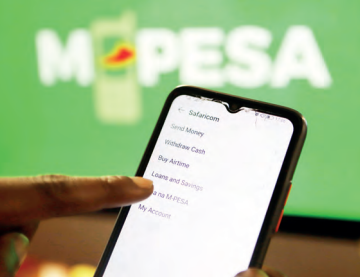
By JACKTONE LAWI
The government has announced a fresh onslaught on businesses and will be looking to ride on paybills and till numbers to nab tax evaders after e-tims failed to solve the issues.
A plan disclosed by senior economic adviser to the President, Moses Kuria, revealed that the state is planning to convert mobile money paybill and till numbers into electronic tax registers (ETRs) by December 25, in a bid to catch tax evaders.
This is after more than three-quarters of registered companies snubbed Kenya Revenue Authority’s electronic tax invoice management system (eTIMS), in its first year of operation, dealing a blow to efforts to drive compliance and curb tax evasion.
Data from the taxman shows that only 120,000 registered taxpayers with business income had signed up to eTIMs in the year to June 2024, representing 18.1 per cent of about 663,000 firms in taxman’s books.
Even so, more than half of businesses on KRA’s electronic Tax Invoice Management System (eTIMS) are not transacting on the platform, underlining the government’s headache in its efforts to expand the tax base.
In the new plan, the paybills will become KRA tax registers, a move that will bring the hundreds of thousands of businesses into the taxman’s radar.
“We’ve agreed with the Commissioner-General that come Christmas 2024, all paybills will also be virtual ETRs for the purposes of tax collection. I know there is going to be some noise, but I also want you to tell me where we agree that someone will not pay taxes? Maybe I missed that point,” said Kuria, “There will be nowehere to hide.”
The move targets traders who rely on mobile money platforms like M-Pesa, T-Kash and Airtel Money but have yet to be captured under the current tax system.
For instance, according to Safaricom’s 2023 annual report, there was a 23.1 per cent increase in the use of Lipa Na Mpesa merchants to 602,662.
This saw the number of customer-to-merchant payments across Safaricom’s platform grow to Sh1.38 trillion, Airtel recorded Sh1.67 billion and T-kash Sh86.30 million, with the total slightly above Sh1.4 trillion. Experts argue that the move has been prompted by the lukewarm reception in the uptake of the eTIMS.
Data analyst Mihir Thakar yesterday noted that the electronic transactions counting as paybills is in response to the problem faced with eTIMS migration.
“A lot of traders have not made the move to the electronic tax system, creating a lacuna in the law because only eTIMS, TIMS or payroll generated expenses will be permitted for tax-deductible purchases in arriving at taxable profit,” said Thakar.
He added that the move is intended to make it easier for compliant businesses to claim expenses. However, it is likely to be seen with mistrust by non-compliant individuals, who could then resort to cash. Kuria, who was previously a Cabinet Secretary, said all paybills will serve as virtual ETRs in an effort to broaden the tax base.
Currently, out of the over two million companies using mobile paybill services, only about 200,000 are registered with physical ETRs-a gap so big in revenue potential. Kuria highlighted that this transition will initially focus on businesses earning more than Sh5 million in annual sales.
President William Ruto has previously indicated that the country’s vast number of mobile money users presents a golden opportunity to enhance revenue collection. KRA is already working on integrating its systems with mobile phone operators to catch income tax evaders.
As part of this effort, mobile money transactions will soon be treated similarly to an electronic tax invoice system (eTIMS), which will make it easier to track sales and compute tax.
This comes at a time when the government is under pressure to raise funds after dropping several tax measures under the Finance Bill 2024 in response to protests

